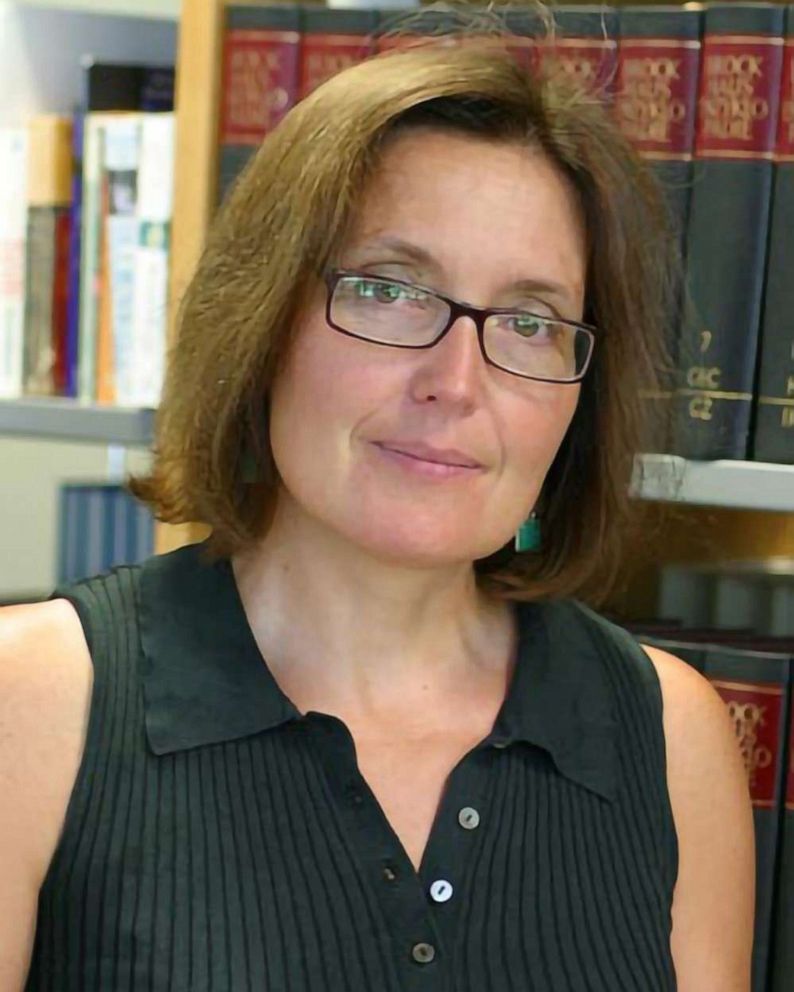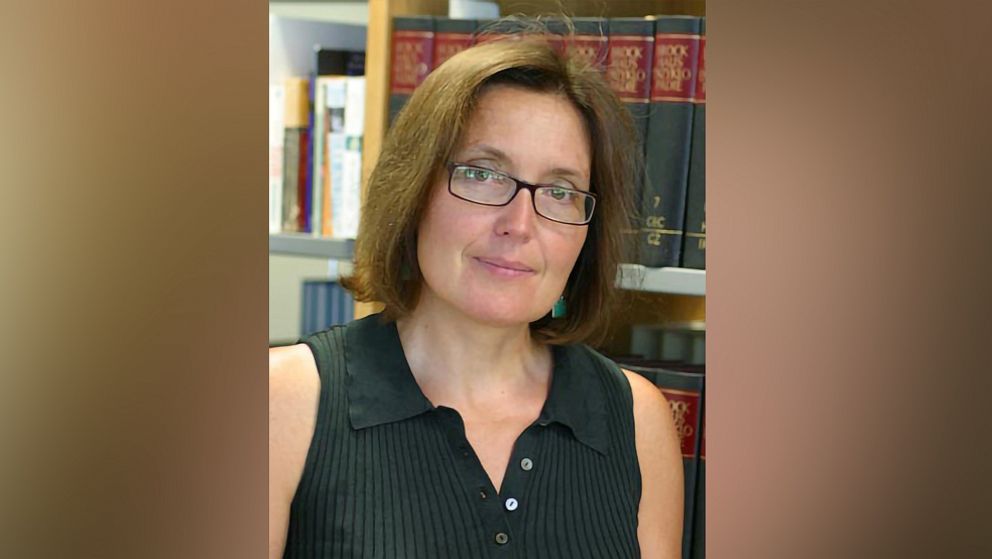Missing American scientist Suzanne Eaton found dead in abandoned WWII bunker in Greece
Greek authorities have found the body of an American scientist on the island of Crete, almost a week after she disappeared.
Search teams recovered the body of U.S. citizen Suzanne Eaton on Monday evening, according to the Max Planck Institute of Molecular Cell Biology and Genetics in Dresden, Germany, where Eaton was a research group leader. The 59-year-old molecular biologist was visiting the Greek island of Crete for a conference when she vanished last week.
Vangelis Zacharioudakis, who led the search effort by the Hellenic Rescue Team, told ABC News on Tuesday that they had found Eaton's body in an abandoned World War II bunker in northwest Crete, about 7 miles from where she had been staying on the island.
Konstantinos Beblidakis, the vice mayor of the local Platanias municipality, said the road leading to the bunker is "accessible" and it's in an area where many tourists stay.
"There are many people going out there and especially tourists who go either by hiking or to go to the villas where they have rented rooms," Beblidakis said in a statement Tuesday. "It is an amphitheatrical area where many tourists pass by daily."
Greek police have not commented on what might have led to Eaton's death, as the investigation is still ongoing. Eaton's body was transferred to the Cretan city of Rethymno for an autopsy to determine the cause of death and an initial forensic procedure to establish whether a crime was committed, according to Crete police spokesperson Eleni Papathanassiou.
"At the moment, all possibilities are being examined," Papathanassiou told ABC News on Wednesday.

Eaton was last seen on the afternoon of July 2 on Crete near the port city of Chania, where she was attending a conference organized by the Orthodox Academy of Crete. Greek authorities, joined by volunteers and Eaton's loved ones, had launched a large-scale search for her in the area, using dogs and helicopters.
Eaton's running shoes were missing from her hotel room while all her other belongings remained there, leading her family and colleagues to believe she may have gone for a run. Her colleagues described her as an avid runner.
A call for help in assisting with the search for Eaton by her family, friends and colleagues prompted a remarkable response, with a page set up to receive donations gathering over $40,000 in roughly 24 hours.
An official with the U.S. State Department told ABC News on Monday they were aware of reports that an American citizen was missing in Greece and were working closely with local authorities.
Eaton, a native of Oakland, California, is survived by her husband and two sons.
"It is with enormous sadness and regret that we announce the tragic demise of our dearest friend and colleague, Suzanne Eaton," the Max Planck Institute of Molecular Cell Biology and Genetics said in a statement Tuesday. "We are deeply shocked and disturbed by this tragic event. Suzanne was an outstanding and inspiring scientist, a loving spouse and mother, an athlete as well as a truly wonderful person beloved to us all. Her loss is unbearable."
Eaton was also a professor at the Biotechnology Center of the Technical University of Dresden in Germany, known as TU Dresden. Her colleagues there described her as "an immensely renowned scientist" and "a remarkable person."
"We were shocked to learn of the death of our dear colleague and friend, Prof. Suzanne Eaton," Hans Muller-Steinhagen, rector of the TU Dresden, said in a statement Tuesday. "We have lost an immensely renowned scientist and a truly outstanding human being."
"We have come to know Suzanne as a lively and committed woman who made a decisive contribution to the development of our institute. Her sudden and untimely death is devastating for us all," Michael Schroeder, director of the TU Dresden Biotechnology Center, said in a statement Tuesday. "We will remember Suzanne as a remarkable person. We are profoundly saddened and speechless."
ABC News' Patrick Reevell contributed to this report.




